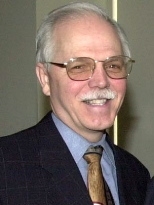Citing such remarkable achievements as electrification, the automobile, and water supply and distribution, Thomas L. Magnanti, Institute Professor and dean of the School of Engineering, argued that engineering systems were vital to the greatest engineering achievements of the past century.
In fact, while new technologies and engineering achievements are often initiated by individuals, it takes an interdisciplinary approach and a systems perspective to make them a reality, he said.
Magnanti's presentation, Engineering Engineering Systems, was delivered Oct. 7 as the annual Brunel Lecture on Complex Systems, sponsored by the Engineering Systems Division. He focused on the importance of engineering systems and posed questions to consider for the 21st century. He also shed light on the development and content of educational programs dealing with complex technical systems, as well as the intellectual foundations of this field.
Magnanti provided details of the development of the System Design and Management (SDM) program, MIT's only degree-granting program offered primarily as a distance-learning program. The program's planners used a systems development process to design the graduate-level program, and data-gathering and analysis based on interviews with more than 100 senior managers in industry and government. The resulting SDM program, which the dean said is helping to define the field of engineering systems, integrates a range of disciplines in engineering and management, including engineering design, systems engineering, optimization and risk assessment, marketing, finance and accounting, human resources management and leadership.
Magnanti used a "Four M" conceptual model (measure, mine, model, manipulate) to illustrate how bioengineers, economists, sociologists and others might characterize some of the intellectual underpinnings of their fields. For example, economists might gather data in the form of national income statements, exchange rates, prices, wages and consumption to measure the economy. They could use econometrics and experiments to mine data, models like game theory and comparative statics to analyze it, and manipulate the economy with instruments like fiscal or trade policies.
He concluded by asking the audience to think about whether engineering systems is a field like management that draws upon a variety of disciplines or is itself a discipline like bioengineering, economics and sociology.
Past Brunel lectures have been given by Norm Augustine on simple systems and other myths, Lewis Branscomb on whether science and technology can make the U.S. safer from catastrophic terrorism, and Institute Professor Sheila Widnall on the engineering systems issues the Columbia disaster raised for engineering education.
A version of this article appeared in MIT Tech Talk on October 27, 2004 (download PDF).






